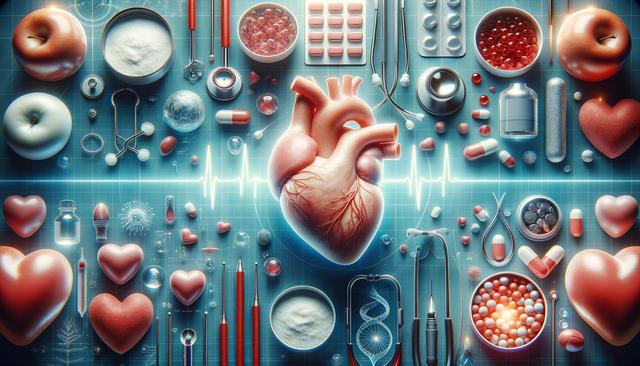Understanding Atrial Fibrillation and Its Dietary Connections
Atrial fibrillation (AFib) is a common heart rhythm disorder characterized by rapid and irregular beating of the atria. It can lead to symptoms such as palpitations, fatigue, shortness of breath, and an increased risk of stroke. While many factors contribute to AFib, including genetics, age, and underlying heart disease, lifestyle choices—especially diet—play a significant role in symptom management. Identifying foods that trigger atrial fibrillation is essential for those looking to minimize episodes and improve overall heart health. By recognizing the relationship between diet and atrial fibrillation symptoms, individuals can take proactive steps toward better managing their condition.
Common Food Triggers for Irregular Heartbeat
Certain foods and beverages have been identified as potential triggers for AFib episodes. These triggers vary among individuals, but several items frequently appear in reports from those living with the condition. Awareness of these common food triggers for irregular heartbeat allows individuals to make more informed dietary choices. Some of these triggers include:
- Caffeinated drinks such as coffee, energy drinks, and certain teas
- Alcohol, especially in excessive or binge quantities
- Processed foods high in sodium and preservatives
- Foods containing monosodium glutamate (MSG)
- High-sugar desserts and artificial sweeteners
While not everyone with AFib will react to the same triggers, keeping a food diary can help pinpoint specific items that may be exacerbating symptoms. Monitoring your reactions and adjusting your diet accordingly is a helpful tool in managing AFib.
What Not to Eat with AFib: Foods to Limit or Avoid
Understanding what not to eat with AFib is a key component of symptom control and heart health. Although everyone’s tolerance varies, there are general categories of foods that are typically recommended to be limited or avoided:
- Highly processed snacks and ready-made meals loaded with trans fats and sodium
- Red meats high in saturated fats
- Caffeinated sodas and sugary beverages
- Excessive alcohol, particularly in short timeframes
- Artificially flavored and preserved foods
By reducing intake of these foods, individuals may notice fewer irregular heartbeats and a greater sense of control over their condition. Additionally, focusing on whole, minimally processed foods can promote cardiovascular stability and overall well-being.
Atrial Fibrillation Dietary Guidelines for Better Heart Health
Adopting specific atrial fibrillation dietary guidelines can support long-term heart health and reduce the frequency of AFib episodes. A heart-friendly diet is rich in nutrients, low in added sugars and sodium, and emphasizes balance. Consider the following guidelines:
- Increase intake of fresh fruits and vegetables, which are high in antioxidants and fiber
- Choose whole grains such as brown rice, oats, and quinoa
- Incorporate heart-healthy fats from sources like avocados, nuts, and olive oil
- Include lean protein options such as legumes, poultry, and fish
- Stay hydrated with water and limit diuretic beverages
These dietary choices not only support rhythm stability but also help manage weight, blood pressure, and cholesterol levels—factors that influence AFib risk. Following these atrial fibrillation dietary guidelines can contribute to a more stable and manageable condition.
How to Manage Diet and Atrial Fibrillation Symptoms Effectively
Managing diet and atrial fibrillation symptoms effectively involves a combination of awareness, planning, and consistency. Since food triggers can differ from person to person, it is helpful to approach dietary changes with an open and observant mindset. Here are a few strategies:
- Keep a symptom and food journal to track patterns and identify personal triggers
- Consult with a registered dietitian or healthcare provider for tailored nutrition advice
- Read food labels carefully to avoid hidden sources of sodium, caffeine, or preservatives
- Prepare meals at home whenever possible to maintain control over ingredients
- Make gradual changes to your diet to ensure sustainability
With these strategies, individuals can gain a better understanding of their body’s response to certain foods and develop a lifestyle that supports both heart health and quality of life. It’s not just about restriction—it’s about making informed, nourishing choices that align with your health goals.
Conclusion: Making Informed Food Choices for AFib Management
For individuals living with atrial fibrillation, understanding the role of diet in managing symptoms is essential. By identifying foods that trigger atrial fibrillation and learning what not to eat with AFib, it becomes possible to reduce the likelihood of episodes and support better heart health. Following atrial fibrillation dietary guidelines and paying attention to personal food responses can empower individuals to take control of their condition. While adjustments may require effort and mindfulness, the long-term benefits of symptom reduction and improved wellness make these changes worthwhile.




Leave a Reply